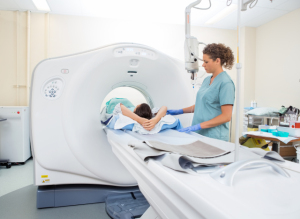by
Lauren Dubinsky, Senior Reporter | June 23, 2015
Annual low-dose computed tomography (LDCT) exams may prevent patients with lung nodules from undergoing unnecessary surgery and also help spot patients whose nodules are likely to become cancerous, according to a new Icahn School of Medicine at Mount Sinai study.
The researchers analyzed the results from 57,496 patients involved in the International Early Lung Cancer Program, which is a global initiative that aims to reduce lung cancer mortality. The patients underwent baseline and annual repeat screenings and the researchers evaluated the occurrence of nonsolid nodules and their impact on long-term outcomes.
They found that 2,392 baseline LDCT screening spotted a nonsolid nodule and further analysis diagnosed 73 cases of cancer. Annual repeat screenings identified a new nonsolid nodule in 485 patients and 11 were diagnosed with Stage 1 cancer.



Ad Statistics
Times Displayed: 2147
Times Visited: 10 Fast-moving cardiac structures have a big impact on imaging. Fujifilm’s SCENARIA View premium performance CT brings solutions to address motion in Coronary CTA while delivering unique dose saving and workflow increasing benefits.
The median transition time from nonsolid to part-solid was over two years, which suggests it's safe to follow nonsolid nodules of any size with CT at 12-month intervals to evaluate if they will transition to part-solid.
“Our study shows the importance of annual screening and follow-up in the general population,” Dr. David Yankelevitz, professor of radiology at the Icahn School of Medicine at Mount Sinai, said in a statement. “This could further reduce unnecessary CT scans, possible biopsies or even surgery for lung cancer.”
This study can also be helpful for the shared decision making process between physicians and patients. The findings will assure patients that annual screening intervals are adequate.

